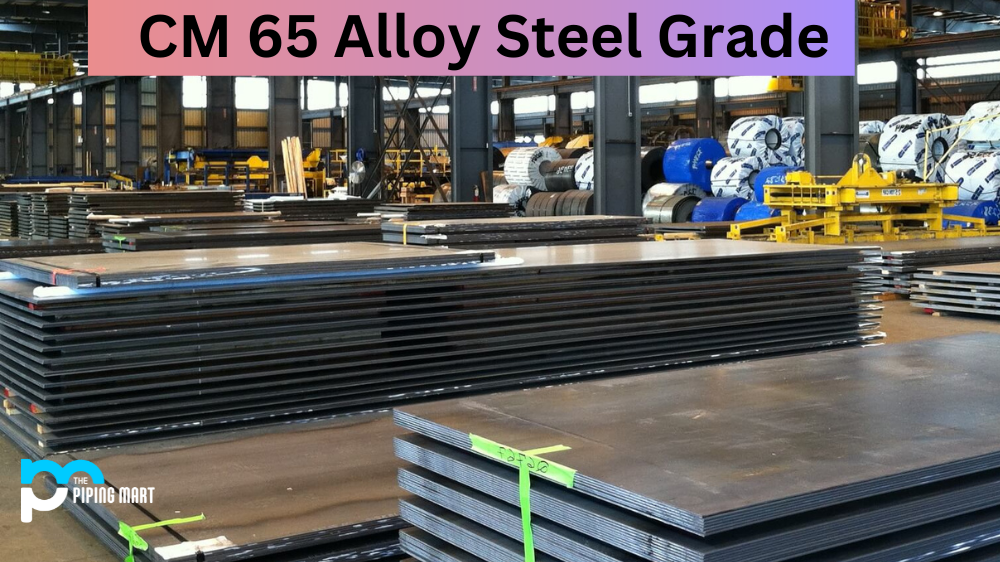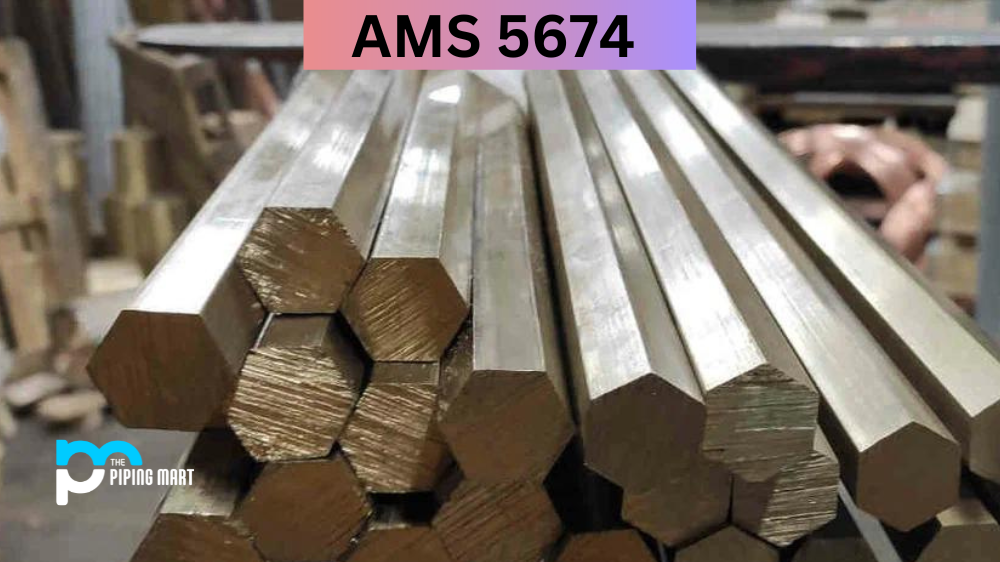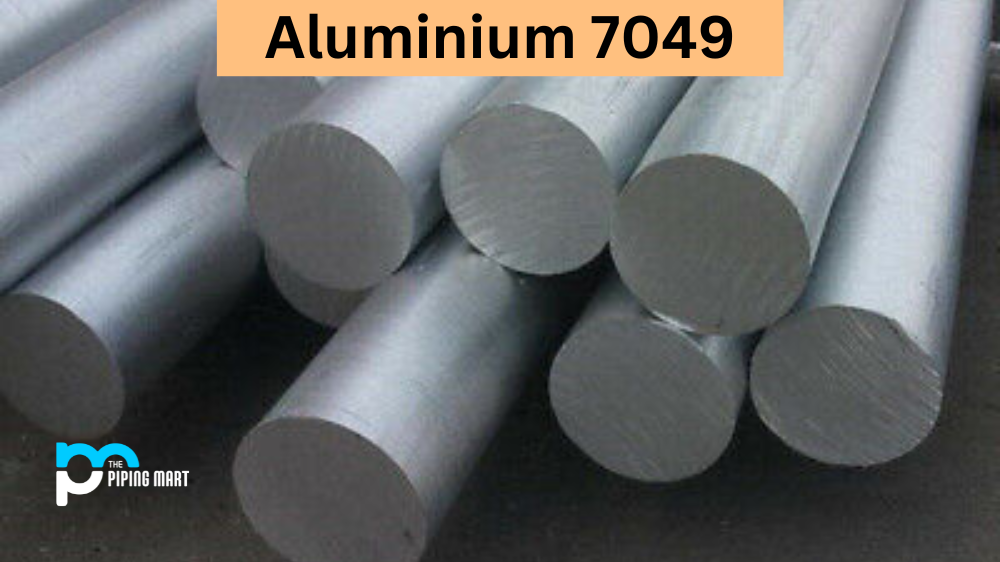Alloy Steel Grade CM 65 is a popular steel grade for many applications due to its strength and durability. It is composed of iron, carbon, and other alloying elements that give it enhanced properties such as corrosion resistance, heat resistance, and wear resistance. In this blog post, we will discuss the composition, chemical properties, mechanical properties, physical properties, uses, corrosion resistance, heat treatment processes, welding techniques and machining methods of Alloy Steel Grade CM 65.
Composition
Alloy Steel Grade CM 65 is composed primarily of iron with small amounts of carbon along with other alloying elements such as manganese and chromium. The addition of these elements give the steel additional strength and enhance its ability to resist corrosion and wear.
| 1CR | 1-1/4CR | 2-1/4 CR | 5 CR | 9 CR | 91 | |
| C | 0.05-0.17 | 0.05-0.17 | 0.05-0.15 | 0.15 | 0.15 | 0.08-0.12 |
| Mn | 0.40-0.65 | 0.40-0.65 | 0.30-0.60 | 0.30-0.60 | 0.30-0.60 | 0.30-0.60 |
| P | 0.025 | 0.025 | 0.025 | 0.025 | 0.025 | 0.020 |
| S | 0.025 | 0.025 | 0.025 | 0.025 | 0.025 | 0.010 |
| Si | 0.15-0.40 | 0.50-0.80 | 0.50 | 0.50 | 1.00 | 0.20-0.50 |
| Cr | 0.80-1.15 | 1.00-1.50 | 2.00-2.50 | 4.00-6.00 | 8.00-10.00 | 8.00-9.50 |
| Mo | 0.45-0.60 | 0.45-0.65 | 0.90-1.10 | 0.45-0.65 | 0.90-1.10 | 0.85-1.05 |
| V | – | – | – | – | 0.04 | 0.18-0.25 |
Chemical Properties
The chemical properties of Steel CM 65 include high levels of carbon and manganese, giving the steel increased hardness and strength over other steels. Additionally, Alloy Steel Grade CM 65 contains low levels of phosphorus and sulfur, which help reduce the risk of corrosion in certain environments.
Mechanical Properties
The mechanical properties of Grade CM 65 include high tensile strength, yield strength and elongation at break, making it an ideal material for many applications requiring high-strength components such as automotive parts or structural components like bridges or buildings. The steel has good ductility, making it easy to form into various shapes for use in different applications.
Physical Properties
The physical properties of Alloy CM 65 are excellent due to its high levels of hardness combined with its low density, making the steel lightweight but still strong enough for many applications. Additionally, the steel has good thermal conductivity, which makes it useful in applications where temperature control is important such as heat exchangers or boilers.
Uses
Alloys Steel Grade CM 65 can be used in a variety of applications due to its combination of mechanical strength and thermal conductivity. Common uses include automotive parts such as engine blocks or transmission housings; structural components like bridges or buildings; industrial machinery parts like gears or pumps; pressure vessels like boilers or tanks; electrical components like transformers; pipe fittings; fasteners; valves; etc.
Corrosion Resistance
The alloying elements in Alloy Steel Grade CM65 provide excellent corrosion resistance when exposed to acidic environments or salt water by forming a protective layer on the surface that prevents further oxidation. This makes the steel suitable for use in marine environments or any other application where rust prevention is important.
Heat Treatment Process
Heat treatment is necessary for some applications that require additional hardness or electrical conductivity from the steel such as transformer cores or magnetic shields. Heat treatment processes involve heating up the steel at specific temperatures followed by cooling at different rates depending on what characteristics are desired from the material after heat treating process is complete.
Welding
Welding techniques must be carefully selected based on what type of weld joint required as well as what type (ferrous/non-ferrous) metal needs to be joined together since different types require different welding techniques to achieve optimal welds without compromising material integrity over time due to fatigue failures from improper welding techniques being used during fabrication process . Common welding techniques used with Alloy Steel Grade CM65 include shielded metal arc welding (SMAW), gas tungsten arc welding (GTAW), flux-cored arc welding (FCAW), submerged arc welding (SAW), etc., depending on application requirements .
Machining
Machining methods should also be carefully considered when working with materials like Alloy Steel Grade CM65 since certain cutting tools may not perform sufficiently enough if incorrect ones are selected during the fabrication process . Common machining methods used with this type of material include turning , drilling , milling , grinding , tapping , reaming , etc., depending on desired end product shape/size/tolerance requirements .
Conclusion
By understanding all aspects surrounding Alloy Steel GradeCM65 including composition , chemical properties , mechanical properties , physical properties , usage , corrosion resistance heat treatment processes , welding techniques & machining methods one can better select correct one based off individual application parameters & requirements while ensuring optimal results & performance every time ! With proper knowledge & experience gained through research & practice anyone can confidently use this material knowing they made the right choice !
Meet Heer, a dynamic and driven writer learning tricks of her trade in the metal industry. With a background in Digital Marketing, Heer brings a unique perspective to her writing, sharing valuable insights. Apart from blogging she like reading and hiking.



